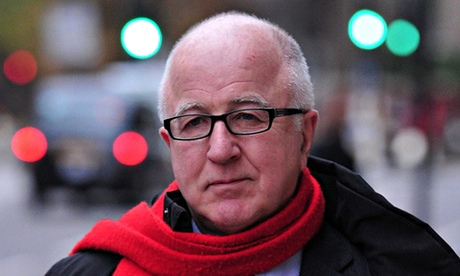
Although I found Denis MacShane an assiduous and engaging colleague with a track record of support for many good causes, he has always lived dangerously. His career as a journalist and later as an MP and Foreign Office minister is a series of well-documented scrapes, some of which landed him in serious trouble.
I first came across him more than 30 years ago when we were both subeditors in the newsroom of the BBC World Service. He had been exiled there from BBC Radio in the West Midlands, where he had been a producer until an unfortunate incident led to his dismissal. One day, during a dull phone-in, he posed as a member of the public, calling former home secretary Reginald Maudling a crook. Maudling, needless to say, threatened to sue.
The event that sadly ended his parliamentary career and led to his imprisonment was an expenses fiddle. Using notepaper headed with the name of a front organisation (the "European Policy Institute") and what he called "a nom de plume", he submitted invoices to himself, the proceeds of which he used to fund his extracurricular European activities. This led, in due course, to his being charged with false accounting. In a nutshell, fraud. Although on the opening page – and at intervals throughout – he appears remorseful ("I can only blame myself… I am the author of my own misfortunes"), it soon becomes apparent that he is still in denial.
MacShane's diaries are suffused with a burning sense of injustice. Over and over he rails against those he regards as responsible for his fate – chairman of the House of Commons standards committee Kevin Barron, parliamentary commissioner John Lyon, director of public prosecutions Keir Starmer and, above all, the judge who sent him down, Mr Justice Sweeney. Repeatedly, he points out that many MPs exploited the old expenses system to make large personal profits and got away with it. True, Denis, but only a handful engaged in outright fraud, and those who did suffered a similar fate.
Once he has decided to accept his fate and get on with his sentence, MacShane is at his best. Day after day of the six weeks he served, he documents the banality and pointlessness of prison life, the petty humiliations, the surly indifference of many of the prison officers and the overwhelming incompetence of the system as a whole. Rehabilitation, he finds, is a low, almost nonexistent priority. Indeed, from this account, it is hard to see how anyone could emerge a better person than they went in. Of his fellow prisoners he speaks highly. "I found only warmth, friendship and shared solidarity… There was a sense of right and wrong, the difference between truth and mendacity and a willingness to admit mistakes."
For reasons that are unclear, unlike other imprisoned politicians, MacShane is sent first to the notorious Belmarsh, where he finds himself mixing with armed robbers and murderers, including Soho nail bomber David Copeland, serving a 50-year sentence. Much of his time in Belmarsh is spent banged up alone, watching television. The food is bland and stodgy. He is not allowed access to his books. The prison library is just about impenetrable. "You're in prison, get used to it," is the standard reply to his occasional protests. Later, in Brixton, life looks up slightly. He gains access to the gym and a handful of his books and finds himself sharing a cell with Douggie, an affable Edinburgh businessman serving time for a VAT fraud who has access to a supply of decent food.
As others before have noted, our prisons are full of people who ought not to be there or whose debt to society might have been better repaid by a non-custodial sentence. Many remain incarcerated, at considerable public expense, beyond their "tag" date because the system is incapable of processing them. "What the judge says has nothing to do with us, we'll decide when you're released," is the response to MacShane's inquiry as to when he's likely to be freed.
There is a poignant moment at the end. As he is waiting to be released back to a comfortable home, a loving family and welcoming friends, MacShane talks to the man in front of him, a minor drug dealer, "pasty-faced and looking sick and nervous at the prospect of release". "'My dad died when I was 10, me mum jumped off London Bridge when I was 18… Now I'll get £46, plus £8 for a tube fare and a telephone number of a homeless hostel. I have no family, nowhere to go. I don't know what I'll do.'" "I know what he'll do," says MacShane. "He'll be back."
Chris Mullin was the MP for Sunderland South from 1987 to 2010 and served with Denis MacShane as a minister at the Foreign Office. Prison Diaries is published by Biteback (£20). Click here to buy it for £16 with free UK p&p

